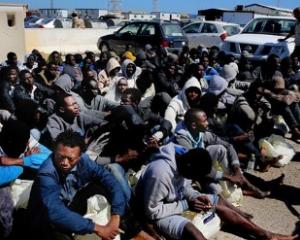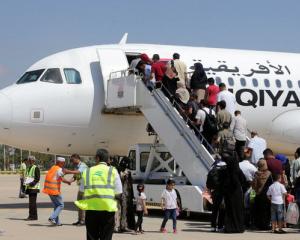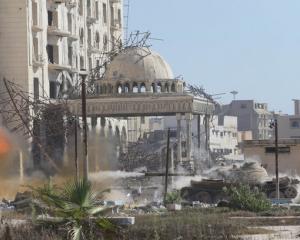Defending the first war launched on his watch, President Barack Obama has declared that the United States intervened in Libya to prevent a slaughter of civilians that would have stained the world's conscience and "been a betrayal of who we are."
Yet he ruled out targeting Muammar Gaddafi, warning that trying to oust him militarily would be a costly mistake.
Obama announced that NATO would take command over the entire Libya operation on Wednesday, keeping his pledge to get the US out of the lead - but offering no estimate on when the conflict might end.
He did not describe the US-led military campaign as a "war" and gave no details on its costs, but he offered an expansive case for why he believed it was in the national interest of the United States and allies to act.
In blunt terms, Obama said the US-led response had stopped Gaddafi's advances and halted a slaughter he warned could have shaken the stability of an entire region.
"To brush aside America's responsibility as a leader and - more profoundly - our responsibilities to our fellow human beings under such circumstances would have been a betrayal of who we are," Obama said.
"Some nations may be able to turn a blind eye to atrocities in other countries. The United States of America is different. And as president, I refused to wait for the images of slaughter and mass graves before taking action."
Obama spoke to a respectful military audience at the National Defence University after, in Libya, rebel forces bore down on Gaddafi with the help of airstrikes by the US-led forces. The address to the nation was the president's most aggressive attempt to answer the questions mounting from Republican critics, his own party and war-weary Americans: chiefly, why was the US was immersed in war in another Muslim nation?
Amid protests and crackdowns across the Middle East and North Africa, Obama stated his case that Libya stands alone. "In this particular country, at this particular moment, we were faced with the prospect of violence on a horrific scale," he said.
He also warned of the broader implications for the region, without naming the other countries undergoing violent upheaval.
Citing a failure to act in Libya, he said: "The democratic impulses that are dawning across the region would be eclipsed by the darkest form of dictatorship, as repressive leaders concluded that violence is the best strategy to cling to power. The writ of the UN Security Council would have been shown to be little more than empty words, crippling its future credibility to uphold global peace and security."





